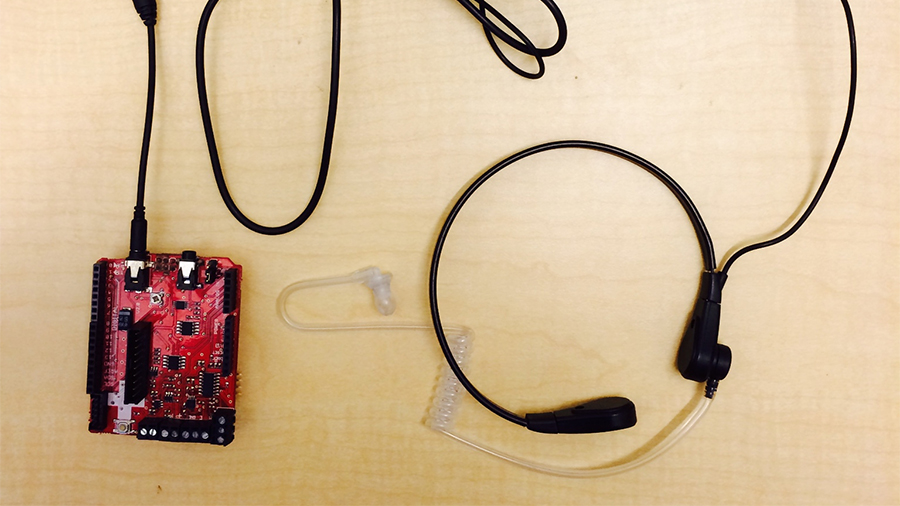This smart necklace can track what you eat through the sound of your chewing
Gulp

Sign up for breaking news, reviews, opinion, top tech deals, and more.
You are now subscribed
Your newsletter sign-up was successful
Most fitness and activity-tracking apps come with some form of food-logging capability, but the problem is they don't work automatically – you have to manually record all the meals and snacks you're having, which can be a chore.
Enter a new device developed in the labs at the University of Buffalo in the US. Computer scientist Wenyao Xu has developed a necklace with an embedded microphone that can work out what you're eating by the sound of your chewing: loud sounds for carrots, quiet sounds for a soft roll, for example.
It's called AutoDietary, and while you won't be able to go out and buy the technology for quite some time, it shows how wearables are soon going to get smart enough to record pretty much everything we do – including those late-night raids on the fridge.
Food for thought
"There is no shortage of wearable devices that tell us how many calories we burn, but creating a device that reliably measures caloric intake isn't so easy," says Xu. "Each food, as it's chewed, has its own voice." All the solid food that goes down your neck can be logged, and the information can be used in conjunction with other data coming from your fitness tracker.
It works with drinks too, apparently, and Xu says his AutoDietary device is already good enough to correctly identify a range of mastication sounds with 85% accuracy. However, there's work still to be done: the necklace can't work out all the ingredients that have gone into your soup, for example.
A complementary biomonitoring device could fill in the gaps left by AutoDietary, Xu suggests, giving a well-rounded picture of food intake that could help diabetics and those suffering from other ailments, as well as those who want to lose a few pounds.
Sign up for breaking news, reviews, opinion, top tech deals, and more.

Dave is a freelance tech journalist who has been writing about gadgets, apps and the web for more than two decades. Based out of Stockport, England, on TechRadar you'll find him covering news, features and reviews, particularly for phones, tablets and wearables. Working to ensure our breaking news coverage is the best in the business over weekends, David also has bylines at Gizmodo, T3, PopSci and a few other places besides, as well as being many years editing the likes of PC Explorer and The Hardware Handbook.